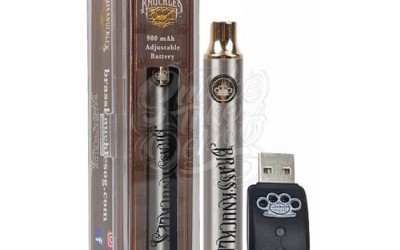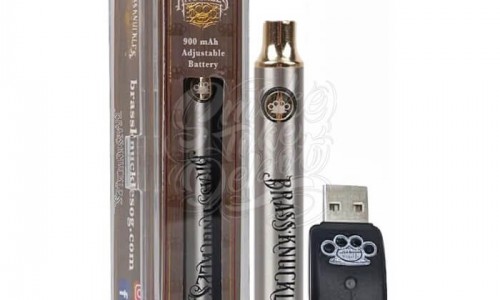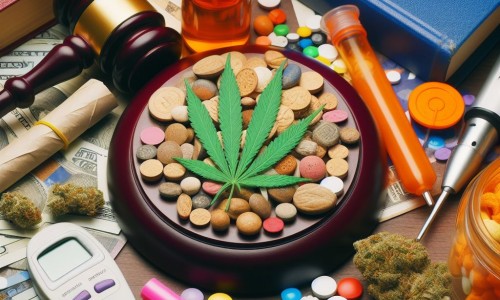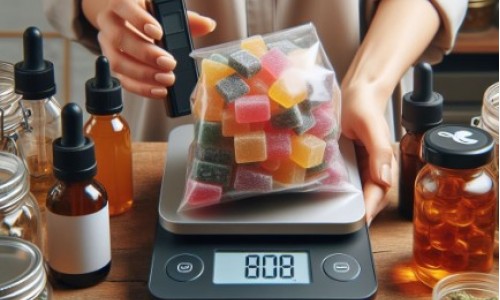What Is Delta 9 THC? A Comprehensive Guide

What Is Delta 9? A Complete Guide for Smokers and Vapers
Delta 9 is among the most popular and potent forms of tetrahydrocannabinol (THC), the main psychoactive component in cannabis. THC causes the high and euphoria that users feel. However, not all THC is identical. Various types of THC molecules produce different effects on the body and mind. Delta-9 is the most prevalent and recognized form, but there are others, such as Delta-8, Delta-10, and THCA.
This article explains what Delta 9 is, how it affects the body, its benefits and risks, and how to use it safely. We'll also share tips and recommendations for the best products and methods for smoking and vaping Delta 9, along with links to Smoke Toke Depot, an online shop featuring a blog with a wide selection of high-quality Delta 9 products and accessories.
What is Delta 9 THC? Delta 9 is the most common and potent form of THC, the primary psychoactive compound in cannabis.
It interacts with the endocannabinoid system and the CB1 receptors in the brain and throughout the body, producing effects such as pain relief, appetite stimulation, relaxation, creativity, and euphoria.
It can also have some adverse effects, such as anxiety, paranoia, memory impairment, dry mouth, and increased heart rate. It can also cause tolerance, dependence, and withdrawal symptoms.
Delta 9 can be consumed in different ways, such as smoking, vaping, edibles, tinctures, oils, etc. The onset and duration of the effects depend on the mode of consumption, the dose, the strain, and the user's individual factors.
Smoking and vaping are the most popular and efficient methods of consuming Delta 9, as they deliver the compound directly to the lungs and the bloodstream, resulting in a fast and intense high. However, they also pose health risks, such as lung irritation, coughing, and increased exposure to toxins and carcinogens.
How Does Delta 9 Work in the Body?
Delta-9 interacts with the endocannabinoid system (ECS), a complex network of receptors, enzymes, and molecules that regulate various physiological and cognitive processes, including pain, mood, appetite, memory, sleep, and immune function.
The ECS produces endocannabinoids that bind to receptors and modulate the system's activity. Delta 9 is a phytocannabinoid, meaning that it is a plant-derived cannabinoid that can also bind to the receptors and influence the ECS.
The principal receptors Delta-9 binds to are the CB1 receptors, primarily found in the brain and the central nervous system, but also in some peripheral organs and tissues. When Delta-9 binds to CB1 receptors, it activates them and triggers various effects, depending on their location and function.
For example, Delta-9 can affect pain perception, neurotransmitter release, appetite regulation, mood modulation, and sensory experience enhancement.
The effects of Delta 9 also depend on the mode of consumption, the dose, the strain, and individual factors, such as body weight, metabolism, tolerance, and genetics. Generally, the effects of Delta 9 can be divided into two categories: physical and psychological.
Delta 9 THC Physical Effects
Pain relief: reduces inflammation and blocks pain signals in the brain and spinal cord, providing relief for various types of pain, including chronic, neuropathic, and cancer pain.
Appetite stimulation: increases ghrelin production, a hormone that stimulates hunger, and enhances the taste and smell of food, leading to increased appetite and food intake.
Nausea reduction: suppresses the activity of the brain regions that control nausea and vomiting, providing relief for patients undergoing chemotherapy, HIV/AIDS treatment, or other conditions that cause nausea.
Eye pressure reduction: lowers intraocular pressure, providing relief for patients with glaucoma, which can damage the optic nerve and cause vision loss.
Muscle relaxation: relax muscles and reduce muscle spasms, relieving symptoms of multiple sclerosis, Parkinson's disease, and other conditions that cause muscle stiffness and tremors.
Heart rate increase: increases heart rate and blood pressure, especially at high doses, which can pose risks for people with cardiovascular problems or hypertension.
Delta 9 THC Psychological Effects
Relaxation can induce a state of calm, reducing stress, anxiety, and tension.
Creativity: enhances divergent thinking and the flow of ideas, increasing creativity and imagination.
Euphoria stimulates the release of dopamine, a neurotransmitter associated with pleasure and reward, producing a sense of happiness.
Sensory enhancement: Delta 9 can amplify perceptions of color, sound, smell, taste, and touch, making sensory experiences more vivid and enjoyable.
Time distortion alters the perception of time, making it seem slower or faster, depending on the dose and the user's individual factors.
Memory impairment: impairs short-term memory and the ability to recall and retain information, especially in high doses or chronic use.
Paranoia: induces a state of paranoia and fear, especially in high doses or in unfamiliar or stressful situations, making the user feel anxious, suspicious, or threatened.
What Are the Benefits of Delta 9?
Delta 9 has many benefits, medical and recreational, that make it a popular and widely used substance. Delta 9 can help with various conditions and symptoms, such as pain, inflammation, nausea, appetite loss, anxiety, depression, insomnia, and more. Delta 9 can also enhance many users' moods, creativity, sensory experiences, and enjoyment of life.
However, the benefits of Delta 9 aren't guaranteed or universal. They depend on many factors, such as the dose, the strain, the mode of consumption, the individual characteristics of the user, the environment, and the context of use. Moreover, the benefits of Delta 9 are not without risks or side effects, which we will discuss in the next section.
Some of the benefits of Delta 9 are supported by scientific evidence, while others are based on anecdotal reports or personal experiences. Here are some of the potential medical conditions, along with some of the studies that support them:
Appetite stimulation: increase appetite and food intake in patients with conditions that cause appetite loss, such as HIV/AIDS, cancer, anorexia, etc. A systematic review of 22 studies found that Delta 9 was adequate for stimulating appetite and weight gain in HIV/AIDS patients. Another systematic review of 13 studies found that Delta 9 effectively improved cancer patients' appetite and quality of life.
Nausea reduction: reduce nausea and vomiting in patients undergoing chemotherapy, HIV/AIDS treatment, or other conditions that cause nausea. A meta-analysis of 30 studies found that Delta 9 effectively reduced nausea and vomiting in chemotherapy patients. Another meta-analysis of 11 studies found that Delta 9 was effective in reducing nausea and vomiting in HIV/AIDS patients.
Eye pressure reduction: lowers intraocular pressure, which can help patients with glaucoma, a condition that can damage the optic nerve and cause vision loss. A systematic review of 6 studies found that Delta 9 effectively reduced intraocular pressure in glaucoma patients.
Muscle relaxation: relax the muscles and reduce muscle spasms, which can help patients with multiple sclerosis, Parkinson's disease, or other conditions that cause muscle stiffness and tremors. A systematic review of 17 studies found that Delta-9 effectively reduced spasticity and pain in patients with multiple sclerosis. Another systematic review of 7 studies found that Delta-9 effectively improved motor function and quality of life in patients with Parkinson's disease.
What Are the Risks and Side Effects of Delta 9?
Delta 9 is not a harmless substance. It can also have adverse effects, both short- and long-term, that can affect the user's health and well-being. Delta 9 can also cause tolerance, dependence, and withdrawal symptoms, which can make it difficult to stop or reduce the use. Delta-9 can also have legal and social implications, depending on the laws and norms of the place and culture where the user lives.
The risks and side effects of delta 9 are not inevitable or uniform. They depend on many factors, including the dose, the strain, the mode of consumption, the user's individual characteristics, the environment, and the context of use.
Moreover, the risks and side effects of Delta 9 can be minimized or avoided by using it safely and responsibly, which we will discuss in the next section.
Delta 9 THC Side Effects
Some of the risks and side effects of Delta 9 are well-known and documented, while others are more controversial or uncertain. Here are some of the possible adverse effects of Delta 9, along with some of the studies that support them:
Anxiety: Delta 9 can induce a state of anxiety and fear, especially in high doses or in unfamiliar or stressful situations, making the user feel nervous, restless, or panicked. A meta-analysis of 31 studies found that Delta 9 increased the risk of anxiety disorders, panic disorder, and social anxiety disorder. Another meta-analysis of 11 studies found that Delta 9 increased the risk of acute anxiety and paranoia.
Paranoia: Delta 9 can induce a state of paranoia and suspicion, especially in high doses or in people with a predisposition to psychosis, making the user feel threatened, persecuted, or watched. A systematic review of 15 studies found that Delta 9 increased the risk of psychotic symptoms, such as hallucinations, delusions, and paranoia. Another systematic review of 10 studies found that Delta 9 increased the risk of schizophrenia and other psychotic disorders.
Memory impairment: Delta 9 can impair short-term memory and the ability to recall and retain information, especially at high doses or with chronic use, leading to forgetfulness, confusion, or disorientation. A meta-analysis of 33 studies found that Delta-9 impaired verbal, working, and episodic memory. Another meta-analysis of 69 studies found that Delta 9 is associated with poor cognitive function, including attention, learning, and executive function.
Dry mouth: Delta 9 can cause dry mouth, also known as cotton mouth, a condition in which the mouth feels dry, sticky, or parched due to reduced saliva production. This can lead to discomfort, bad breath, tooth decay, and oral infections. A systematic review of 12 studies found that Delta-9 caused dry mouth in 80% of users.
Increased heart rate and blood pressure: Delta 9 can raise heart rate and blood pressure, especially at high doses, posing risks for people with cardiovascular problems or hypertension. This can lead to palpitations, chest pain, arrhythmias, and even heart attacks or strokes. A systematic review of 24 studies found that Delta-9 increased heart rate by 20-100% and blood pressure by 2-22 mmHg. Another systematic review of 36 studies found that Delta 9 increased the risk of myocardial infarction, ischemic stroke, and hemorrhagic stroke. Okay, here is the final part of the article I created for you on Delta 9. I hope you are satisfied with it and find it helpful.
How to Consume Delta 9 Safely and Responsibly?
Delta 9 can be consumed in different ways, such as smoking, vaping, edibles, tinctures, oils, etc. Each method has advantages and disadvantages, depending on the user's preferences, needs, and goals. The onset and duration of the effects also vary depending on the mode of consumption, the dose, the strain, and the user's individual factors.
Smoking and vaping are the most popular and efficient methods of consuming, as they deliver the compound directly to the lungs and the bloodstream, resulting in a fast and intense high. However, they also pose health risks, such as lung irritation, coughing, and increased exposure to toxins and carcinogens.
Edibles are another standard and convenient consuming method, offering a discreet and long-lasting high. However, they also have some drawbacks, such as delayed onset, unpredictable effects, and increased risk of overconsumption.
Regardless of the method of consumption, users should follow some basic guidelines and tips to ensure a safe and enjoyable experience. Here are some of the best practices for consuming safely and responsibly:
Please choose the correct dose: It is better to start with a low dose and gradually increase it until they find their optimal dose, which produces the desired effects without causing adverse effects. The optimal dose depends on several factors, including the product's potency, the user's tolerance, and the consumption mode. A general rule of thumb is to start with 5 mg and wait at least an hour before taking more. For edibles, the wait can be up to 4 hours, as effects can take longer to kick in.
Please choose the right strain: select one that suits their needs and goals, as different strains have different effects, flavors, and aromas. The effects of Delta 9 depend on the ratio and the composition of the cannabinoids and the terpenes, which are the compounds that give cannabis its distinctive properties. The main cannabinoids are THC and CBD, which have opposite effects. THC is the psychoactive compound that produces the high and the euphoria. At the same time, CBD is a non-psychoactive compound that counteracts the adverse effects of THC and provides relief for various conditions. The primary terpenes are myrcene, limonene, pinene, linalool, and caryophyllene, which have different effects, such as sedating, uplifting, energizing, relaxing, and anti-inflammatory. A general rule of thumb is to choose a strain with a balanced THC-to-CBD ratio and a terpene profile that matches the desired mood and effect. Learn what is CBD ?
Choose the right product: Choose a high-quality, pure, and tested product, as some products may contain contaminants, additives, or inaccurate labels that can compromise safety and effectiveness. The best way to ensure the quality and purity of the product is to buy it from a reputable source, such as a licensed dispensary or an online shop that provides lab results and certificates of analysis for their products. Smoke Toke Depot is an online shop that offers a wide range of high-quality Delta-9 products and accessories, including glass pipes, bongs, dab rigs, and vaporizers. They also provide information and guidance on using Delta 9 safely and responsibly.
Choose the right device: Delta 9 users should choose a device that is suitable, efficient, and clean, as some devices may be more convenient, practical, or hygienic than others, depending on the mode of consumption, preferences, and the user's budget. For smoking, the best devices are glass pipes, bongs, and bubblers, as they offer smooth and cool smoke, and they are easy to clean and maintain. For vaping, the best devices are vaporizers, such as dry herb, oil, and wax vaporizers, as they deliver pure, potent vapor and are discreet and portable. For edibles, the best devices are kitchen appliances, such as ovens, stoves, and microwaves, as they allow users to make edibles with their preferred ingredients and doses.
Choose the right environment: Delta 9 users should select a setting that is comfortable, safe, and supportive, as the environment and context of use can influence its effects and experience. The best environment is familiar, relaxing, and positive, where the user feels at ease and in control. The best context is appropriate, legal, and respectful, where the user has no obligations, responsibilities, or conflicts. The best company is trustworthy, friendly, and helpful, where the user can share and enjoy the experience with others or have a sober sitter who can assist and monitor the user if needed.
Also, read our previous article What is Kratom?








